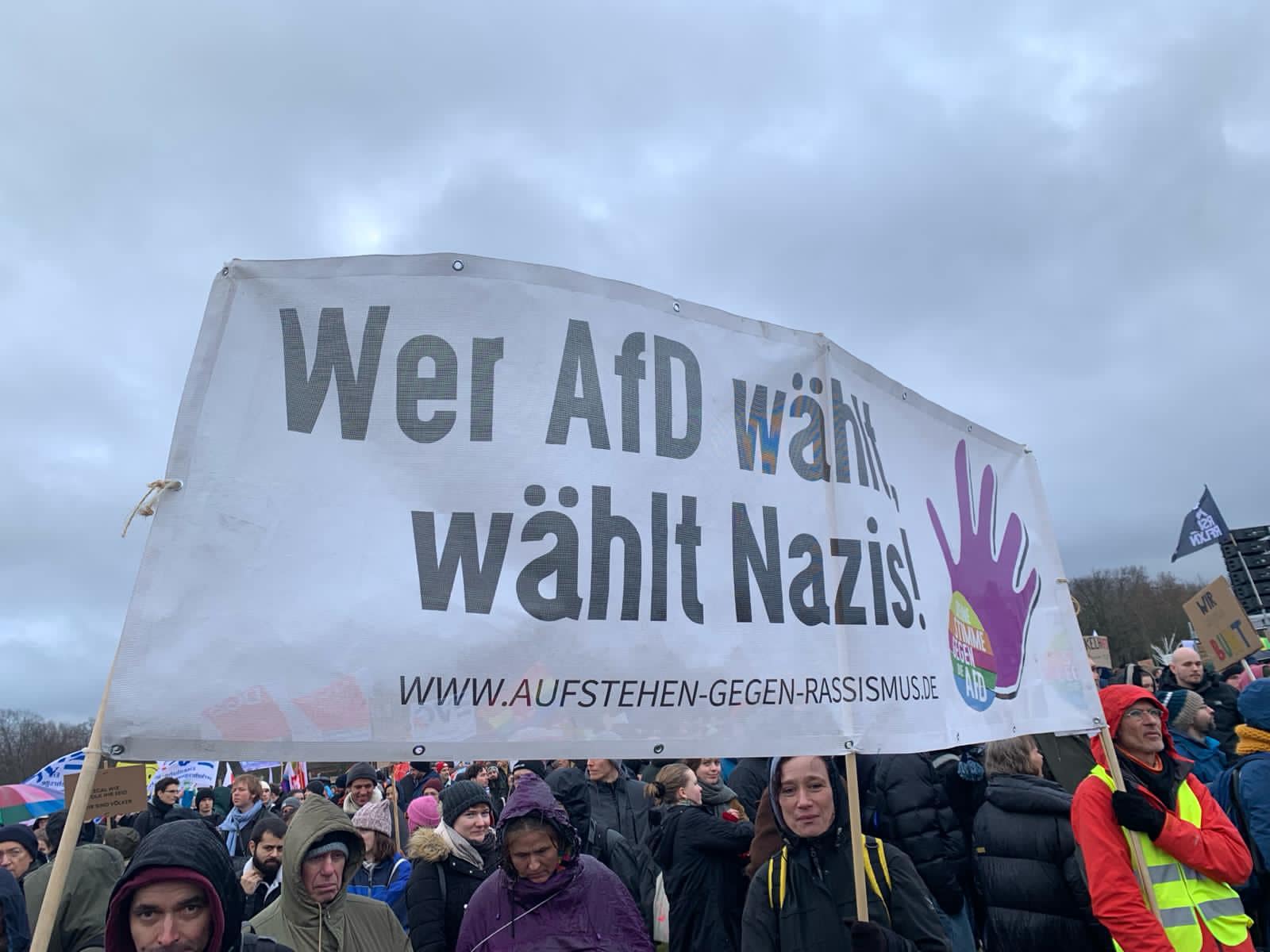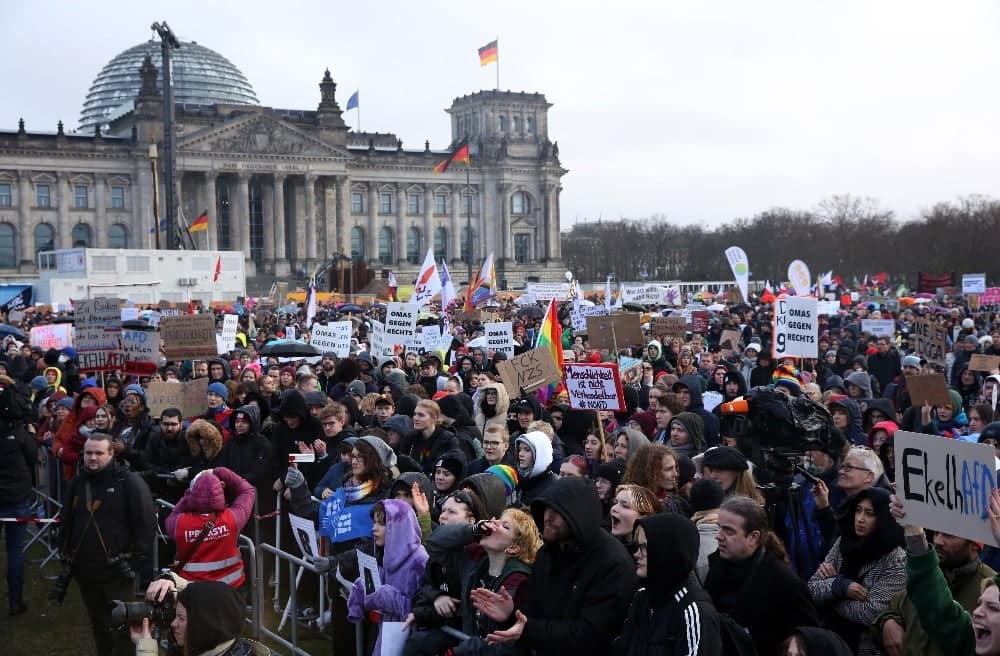
Support for Germany’s far right AfD has dipped below 20% for the first time since mid-2023, after massive demonstrations across the country against plans for mass deportations which the AfD had been secretly discussing with other extreme right wingers.
The revelations came from investigative group Correctiv which revealed in November that senior AfD politicians and sympathisers were alleged to have met secretly with neo-Nazis in Potsdam to discuss plans to deport 200,000 asylum seekers and German citizens of foreign origin each year, in the event that the AfD come to power in the upcoming federal elections.
Such a prospect was once extremely unlikely, given the steadfast refusal of mainstream German political parties to form coalitions with the AfD. However, at the time that the so-called secret meeting took place, the party remained the second most popular in the polls, stimulating fraught political debates about the possibility of banning a democratically-elected – albeit increasingly radicalized – party in a post-WWII Germany.
Correctiv alleged that attendees at the Potsdam meeting were invited by Gernot Mörig and Hans Christian Limmer, both professionals. Searchlight readers will be familiar with some of the names from the AfD, including Roland Hartwig, aide to Alice Weidel, Gerrit Huy MP, Ulrich Siegmund, group leader for Saxony-Anhalt and Tim Krause, chair of the district in Potsdam. Neo-Nazis included Martin Sellner, the Austrian far right activist, Mario Müller and an unnamed Identitarian. Also present were a number of wealthy businessmen and middle to upper class individuals.
According to Correctiv, most guests were invited by the Düsseldorf Forum. Nova news reported that the Düsseldorf Forum hand delivered the invites, and asked for a minimum donation of 5,000Euros.
Following the Correctiv expose, people across Germany took to the streets in their hundreds of thousands to protest against the AfD’s ‘masterplan’. Taking a stand against the party’s exclusionary and racially homogenous brand of politics, anti-fascist activists and concerned individuals alike organised over 230 protests across Germany’s towns and cities, from Cologne, Berlin, and Hamburg, to Munich, Chemnitz, and Rostock.
Demonstrations against the AfD are not a new phenomenon given the party’s history of deliberate provocation and targeted activism; this latest controversy has shone a light on the myriad ways in which the AfD, its members, and associates continue to undermine democracy.

It has, however, also brought together a diverse array of anti-fascist and peace activists under the umbrella of Hand In Hand, a network of organisations dedicated to fighting for an open, democratic, and pluralistic German society that doesn’t leave anyone behind; its motto, ‘Wir sind die Brandmauer’ (‘We are the firewall’) reflects this united front. Subsequently, in conjunction with 2,000 organisations, Hand in Hand formed a human firewall around the Bundestag in Berlin in February 2024, aptly demonstrating the strength of feeling against the AfD and its dehumanising ideas and attracting over 150,000 participants.
The question remains, however, whether the demonstrations will cost the AfD votes in the long run. Recent analysis suggests that after the recent protests, support for the party has dipped below 20 percent for the first time since June 2023. Nonetheless, this is not yet indicative of a definitive shift in broader support for the AfD.
Furthermore, news that over 100 AfD parliamentary staffers have been identified as right-wing extremists will come as little surprise to political observers and is a stark example of just how far the party has infiltrated and destabilised Germany’s democratic institutions using its own socio-legal mechanisms.





